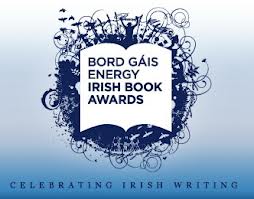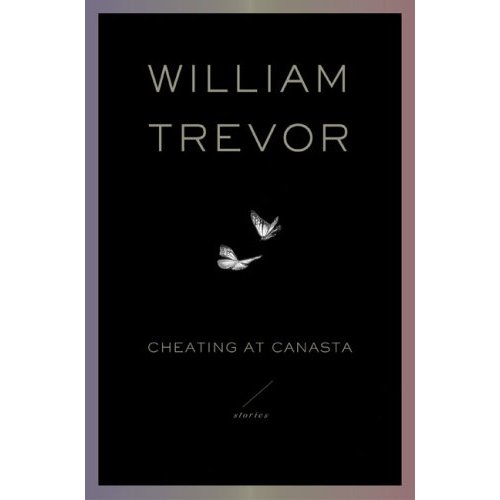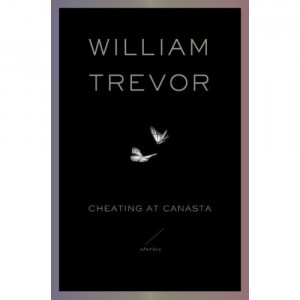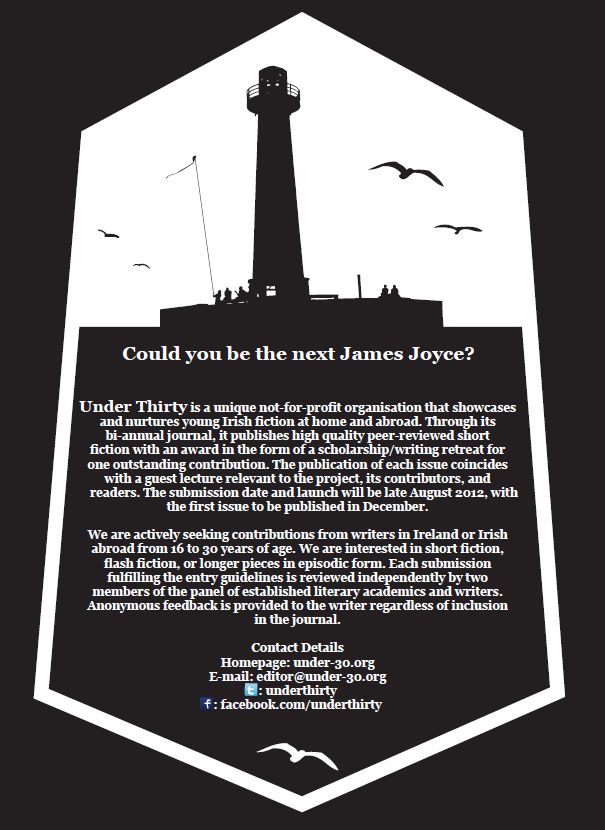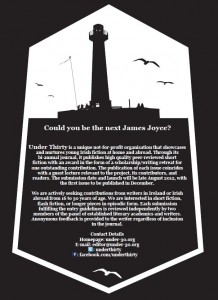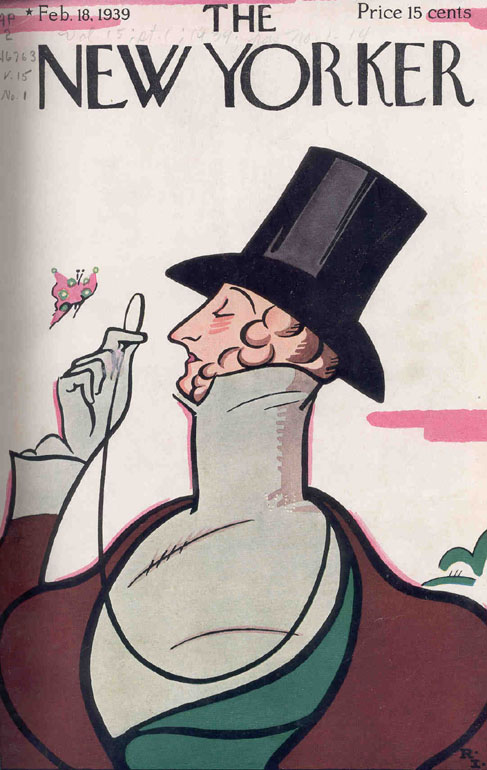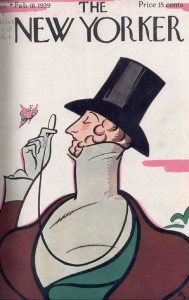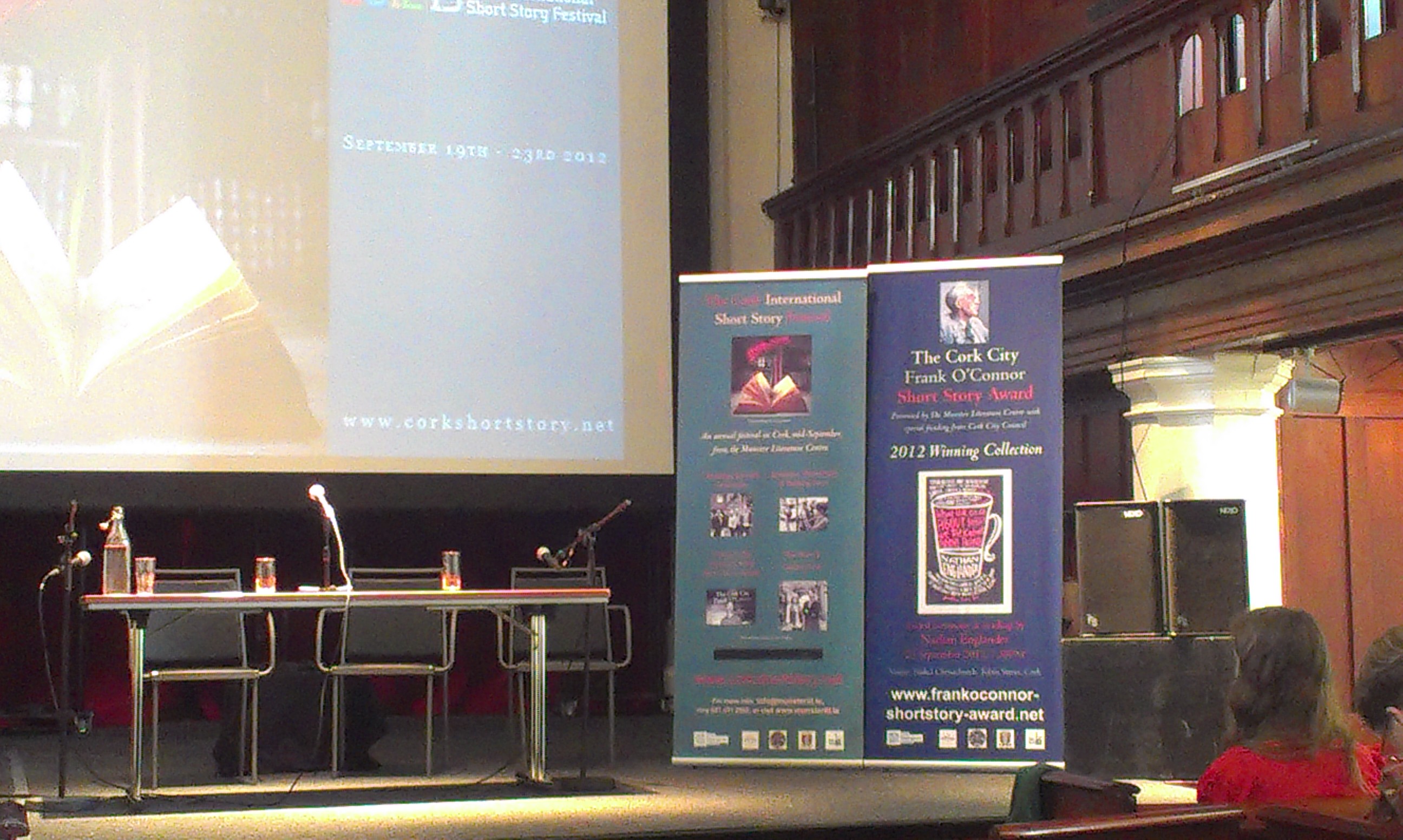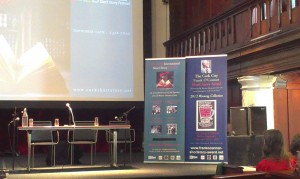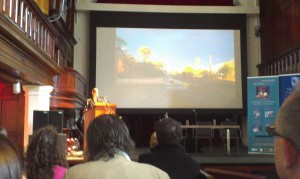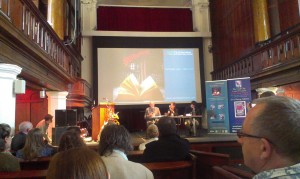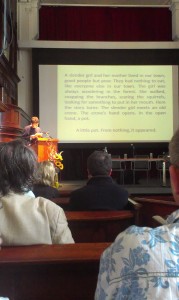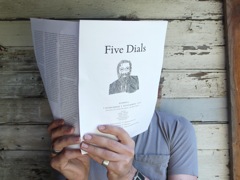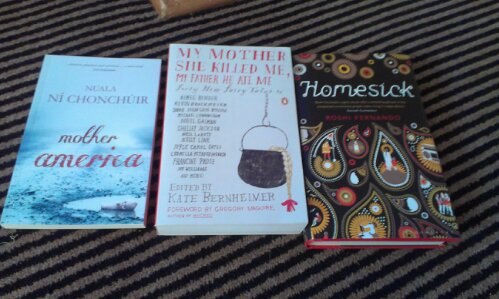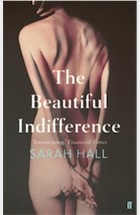 Here’s my review of Nuala Ni Chonchuir’s latest short story collection. Nuala is reading at the Dublin Book Festival this year and her book is rather good!
Here’s my review of Nuala Ni Chonchuir’s latest short story collection. Nuala is reading at the Dublin Book Festival this year and her book is rather good!
This was my first book from Nuala that I had read. I have came across Nuala through her blog and at various literary readings in the last while. She is incredibly generous with her time and comments on readers’ blogs. Now, it’s my turn to be generous with my comments and time.
Mother America is quite a female book. We can see that from the title and most of the stories focus in on women, mothers, sisters and wives. Having said that, it doesn’t prevent Nuala from writing brilliant narratives from a male perspective either. The short story collection opens with Peach which is written from a male perspective. Its opening line demands your attention
There was a pregnant woman getting drunk in the back lounger.
Dearie me. I was ready immediately with my judgements on this woman who turns out to be quite a tragic lady in the end. This story will hit you with the rawness of feeling and pity you feel for the two main protagonists.
Nuala’s stories range from the really short type like The Egg Pyramid;a story that uses the story of the Mexican painters Frida Kahlo and Diego Rivera. It focusses on Diego’s and his infidelity with Frida’s sister Cristina. It uses this as a comparison with the woman in the story and her sister. Crushing stuff in very few words.
Letters is one of those really good short stories where you have so many questions to ask about the characters within it. The story opens with a mother opening her son’s letter. We find out this woman relocated to America for her son but has been effectively dumped and left there to do battle with a country she feels like an alien in. Nuala creates a believable character and made me feel rather angry at her son!
Nuala is also brilliant at creating stories from the past. Triangle boy, Moongaxer, Scullion and My name is William Clongallen all speak of women from the past but they all tell of themes of infidelity, love identity and women’s struggles. Universal themes that can be found throughout all of her stories.
The great thing about this book is that you can pick it up, read one story and think about it for a few days before you delve into another. Or you can read it all in one go!
All of the stories are delightful and capture that important moment of life that a good short story should and then rising to a satisfying conclusion. The stories never get too long or tedious. some are only of a few pages, which is great to see flash fiction taking its rightful place in the short story collection.



